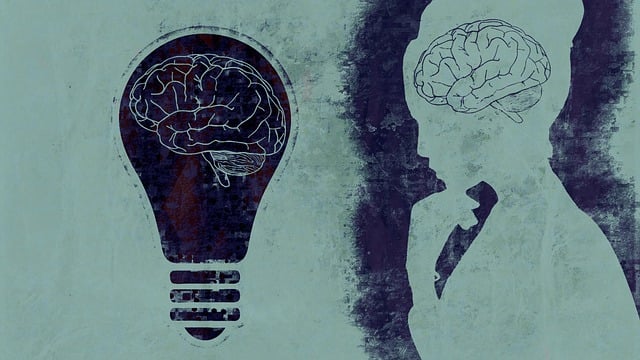Mental health professionals specializing in therapy for young adults with international adoptions face unique challenges, including cultural complexities, legal nuances, and emotional issues. Effective practice demands cultural sensitivity, global adoption law knowledge, and awareness of secondary traumatic stress. A comprehensive approach involving policy analysis, advocacy, and self-care practices ensures ethical and resilient therapy for both clients and therapists in this specialized niche. Key focus areas include mental health awareness, trauma processing, community support, risk assessment, personalized approaches, safety strategies, and empowering clients through tailored therapy.
“In the realm of mental health support, particularly within international adoption therapy, professionals face unique challenges. This article delves into crucial risk assessment strategies essential for safeguarding therapists and mentors working with young adults from diverse cultural backgrounds. We explore identifying traumatic experiences specific to international adoptees and propose a comprehensive framework for effective risk management.
Key sections include understanding cultural nuances, developing tailored assessment tools, and implementing safety measures to mitigate potential risks associated with therapy for young adults in international adoption settings.”
- Understanding the Unique Risks in International Adoption Therapy
- Assessing Cultural and Social Factors in Mental Health Risk Management
- Identifying Potential Traumatic Experiences and Their Impact on Young Adults
- Developing a Comprehensive Risk Assessment Framework for International Adoptees
- Implementing Effective Safety Strategies for Mentors and Therapists
Understanding the Unique Risks in International Adoption Therapy

Mental health professionals who specialize in therapy for young adults with international adoptions face unique challenges that require a nuanced understanding and specific risk assessment strategies. This niche practice involves navigating complex cultural, legal, and emotional terrains, which can significantly impact both the clients’ well-being and the therapists’ own mental health. The process of adopting a child from another country often brings about a myriad of psychological issues for the young adult, including identity crises, adjustment disorders, and trauma related to their birth and transfer to a new family.
Effective therapy in this context demands professionals be adept at cultural sensitivity, understanding international legal frameworks surrounding adoptions, and recognizing the potential for secondary traumatic stress among therapists. A thorough mental health policy analysis and advocacy is crucial to ensure ethical practices and adequate resources. Moreover, integrating self-care practices into their routine is essential to foster resilience and prevent burnout, as these professionals must be equipped to handle the emotional demands of their work without compromising their own mental health and well-being. Risk management planning should encompass these unique aspects to support therapists in providing safe and effective therapy for young adults with international adoption histories.
Assessing Cultural and Social Factors in Mental Health Risk Management

Mental health professionals must consider the intricate interplay of cultural and social factors when assessing risks for young adults, especially those involved in international adoptions. Understanding the client’s cultural background, family dynamics, and social support systems is crucial in providing effective therapy. Each culture carries unique beliefs and practices that can influence an individual’s perception of mental health and their willingness to seek help. For instance, young adults transitioning from one cultural environment to another through adoption may face challenges related to identity formation and acculturation stress.
Professionals should be well-versed in the diverse range of issues that might arise, including potential barriers to self-care practices and crisis intervention guidance tailored to their specific needs. The process involves active listening, open dialogue, and adapting therapeutic approaches to respect and incorporate cultural elements, thereby enhancing mental health awareness and ensuring a holistic support system for these vulnerable individuals.
Identifying Potential Traumatic Experiences and Their Impact on Young Adults

Many mental health professionals work with young adults who have experienced international adoptions, a process that can be fraught with emotional challenges. Identifying potential traumatic experiences from this process is crucial for effective therapy. Young adults adopting through international channels often face complex situations, including cultural dissonance, loss of family connections, and the stress of adapting to new environments. These experiences can lead to long-term psychological effects, such as anxiety, depression, and post-traumatic stress disorder (PTSD).
Mental health awareness is essential in addressing these issues, especially for professionals working with this demographic. Through community outreach program implementations, therapists can create safe spaces for young adults to share their stories and process their traumas. By fostering open communication and boosting clients’ confidence, therapy can help them navigate the complexities of their pasts and build resilience for a brighter future.
Developing a Comprehensive Risk Assessment Framework for International Adoptees

For mental health professionals working with young adults who have experienced international adoptions, a comprehensive risk assessment framework is essential. This framework should consider the unique challenges and complexities inherent in their backgrounds, such as cultural dissonance, attachment issues, and potential trauma related to separation from birth families. By integrating these factors into the initial assessment process, therapists can tailor their approach to address specific needs.
A robust risk assessment should encompass various domains, including emotional well-being, family dynamics, social integration, and coping mechanisms. Mental health professionals can utilize crisis intervention guidance to manage acute situations, coupled with empathy building strategies to foster strong therapeutic alliances. Additionally, encouraging self-care practices among young adults adopting a new culture is vital for maintaining their resilience and overall mental health.
Implementing Effective Safety Strategies for Mentors and Therapists

Implementing effective safety strategies is paramount for mental health professionals, especially when working with vulnerable populations like young adults navigating international adoptions. These strategies serve as a shield against potential risks and challenges unique to this field. For mentors and therapists, fostering a secure environment is crucial. This involves establishing clear boundaries, ensuring confidentiality, and teaching clients coping mechanisms tailored to their experiences. By integrating Trauma Support Services, professionals can address underlying issues that may resurface during therapy, enhancing the overall effectiveness of treatment.
Promoting mental health awareness among young adults adopting internationally requires a multifaceted approach. Therapists play a pivotal role in boosting clients’ confidence by normalizing their feelings and providing safe spaces to express fears and anxieties related to their new environments. Through these strategies, professionals not only mitigate risks but also empower individuals to thrive, ensuring they receive the comprehensive support needed for a successful transition and lasting mental well-being.
In navigating the complex landscape of mental health support for young adults from international adoptions, therapists must be adept at assessing cultural nuances and traumatic histories. By understanding the unique risks inherent in this practice area—from potential cultural barriers to the impact of past experiences—professionals can develop robust risk assessment frameworks. Implementing safety strategies tailored to mentors and therapists is paramount to ensure a secure environment for both caregivers and adoptees, fostering effective therapy for young adults navigating their international adoption journeys.








